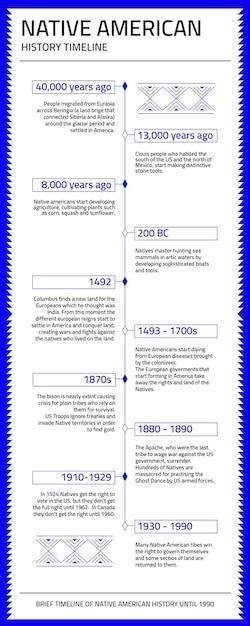
GED Social Studies Cheat Sheet PDF⁚ A Comprehensive Guide
This comprehensive guide provides a concise overview of the GED Social Studies test. It covers key content areas like civics‚ US history‚ economics‚ and geography‚ offering essential skills for success‚ including reading comprehension‚ data analysis‚ and effective study strategies. Access free online resources‚ sample questions‚ and study guides to boost your preparation. Learn effective test-taking tips and advice for maximizing your score and achieving your GED goal.
Understanding the GED Social Studies Test
The GED Social Studies test assesses your understanding of fundamental social studies concepts and your ability to apply critical thinking skills to analyze social issues. It’s not just about memorizing facts; it evaluates your capacity to interpret information from various sources‚ including texts‚ graphs‚ charts‚ and maps. The exam emphasizes reasoning and problem-solving abilities‚ requiring you to draw inferences‚ make connections between ideas‚ and evaluate arguments. A strong understanding of social studies principles across different domains is crucial. The test aims to gauge your ability to understand and analyze complex social issues‚ and to apply knowledge to real-world scenarios. This test evaluates both your content knowledge and your skills in analyzing information. The questions assess your comprehension and interpretation skills‚ requiring you to analyze various types of information.
Test Format and Timing
The GED Social Studies test is a timed exam‚ typically lasting 70 minutes (1 hour and 10 minutes) with no breaks permitted. The test comprises multiple-choice questions‚ requiring you to select the best answer from a range of options. Some questions might present you with short passages of text‚ requiring you to analyze the provided information and answer questions based on its content. Other questions will involve interpreting data presented in various formats‚ such as charts‚ graphs‚ maps‚ and tables. You’ll need to carefully analyze the visual data and answer questions related to its meaning and implications. Time management is crucial; allocate your time effectively to ensure you attempt all questions within the allotted time frame. The test is designed to assess your ability to quickly and accurately process information‚ and efficiently answer a variety of question types. Familiarize yourself with the format beforehand to improve your performance.
Content Areas Covered⁚ Civics and Government
The civics and government section of the GED Social Studies test assesses your understanding of fundamental principles related to American government and civic participation. Expect questions on the structure and function of the U.S. government‚ including the three branches (executive‚ legislative‚ and judicial) and their roles. Key concepts like checks and balances‚ federalism‚ and the Bill of Rights will be tested. You should also be prepared for questions about citizen rights and responsibilities‚ including voting‚ jury duty‚ and understanding the legal system. Knowledge of important historical documents‚ such as the Declaration of Independence and the Constitution‚ is crucial. Understanding the processes of lawmaking‚ the amendment process‚ and the relationship between the government and its citizens are also vital areas of focus. Reviewing foundational concepts of American democracy and civic engagement will enhance your preparedness for this section of the exam.
Content Areas Covered⁚ U.S. History
The U.S. History portion of the GED Social Studies test requires a broad understanding of major events‚ figures‚ and movements shaping American history. Prepare for questions covering significant periods like colonization‚ revolution‚ westward expansion‚ and the Civil War and Reconstruction. You should be familiar with key individuals who influenced these periods‚ such as George Washington‚ Abraham Lincoln‚ and key figures from the Civil Rights Movement. Understanding the causes and consequences of major conflicts and social changes is essential. The test may include questions on economic developments‚ technological advancements‚ and social reforms throughout American history. Be prepared to analyze primary and secondary sources‚ interpreting historical documents‚ images‚ and narratives to draw conclusions and support your understanding. Focus your studies on significant turning points and their long-term effects on American society‚ politics‚ and culture. A strong grasp of these historical themes will significantly improve your performance in this section.
Content Areas Covered⁚ Economics
The GED Social Studies test’s economics section assesses your understanding of fundamental economic principles and concepts. Prepare to answer questions about supply and demand‚ market structures (e.g.‚ competition‚ monopolies)‚ and the role of government in the economy. Familiarize yourself with different economic systems‚ such as capitalism‚ socialism‚ and communism‚ and understand their characteristics and potential impacts. You should also know about macroeconomic indicators like GDP‚ inflation‚ and unemployment and how they relate to economic growth and stability. Microeconomic principles‚ such as consumer behavior and production costs‚ are also important. Understanding the relationship between economic policies and their effects on individuals and society is crucial. The test might include questions on international trade‚ global economics‚ and economic inequality. Practice interpreting economic data presented in charts‚ graphs‚ and tables to analyze trends and make informed judgments. A solid understanding of core economic principles and their real-world applications will greatly aid your success in this section.
Content Areas Covered⁚ Geography and the World
The GED Social Studies test includes a significant portion dedicated to geography and global issues. Expect questions on physical geography‚ encompassing topics such as climate‚ landforms‚ and natural resources. Understanding map interpretation and spatial reasoning is crucial; be prepared to analyze maps‚ charts‚ and graphs depicting geographical data. The test will assess your knowledge of human geography‚ including population distribution‚ migration patterns‚ and cultural landscapes. You should also be familiar with different types of regions‚ such as political‚ economic‚ and cultural regions‚ and their characteristics. Furthermore‚ the section covers global issues such as environmental challenges (climate change‚ pollution)‚ international relations (trade‚ diplomacy‚ conflict)‚ and global interdependence. Understanding the impact of globalization on various aspects of life‚ including economics‚ politics‚ and culture‚ is essential. Prepare to analyze case studies‚ news articles‚ and other textual materials related to global issues. Practice interpreting geographic data to draw conclusions and solve problems related to global trends and challenges. A strong understanding of both physical and human geography‚ combined with the ability to interpret data‚ is critical for success in this section.
Essential Social Studies Skills⁚ Reading Comprehension and Analysis
Success on the GED Social Studies test hinges on strong reading comprehension and analytical skills. You’ll encounter various text types‚ including historical documents‚ news articles‚ maps‚ charts‚ and graphs. Mastering the ability to quickly and accurately read and understand these diverse materials is paramount. Develop strategies for identifying main ideas‚ supporting details‚ and the author’s purpose. Practice analyzing different perspectives and biases present in the texts. Learn to distinguish between fact and opinion‚ and identify inferences and implications within the provided information. Sharpen your skills in interpreting data presented visually; practice reading and understanding charts‚ graphs‚ and tables to extract relevant information. Develop your ability to synthesize information from multiple sources‚ comparing and contrasting different perspectives and viewpoints. The ability to analyze complex social studies topics‚ identify cause-and-effect relationships‚ and draw logical conclusions is essential for success. Regular practice with diverse reading materials and active engagement with the text will significantly improve your comprehension and analytical abilities.
Essential Social Studies Skills⁚ Data Interpretation and Inference
The GED Social Studies test heavily emphasizes your ability to interpret data and draw logical inferences. You will encounter various data representations‚ including charts‚ graphs‚ tables‚ maps‚ and diagrams. Proficiency in interpreting these visual aids is crucial for understanding complex information and answering related questions accurately. Practice analyzing different types of charts (bar graphs‚ line graphs‚ pie charts) to identify trends‚ patterns‚ and key data points. Develop your skills in reading and interpreting maps‚ understanding geographical locations‚ and analyzing spatial relationships. Learn to extract meaningful information from tables and data sets‚ identifying correlations and drawing logical conclusions. Master the art of making inferences‚ which involves drawing logical conclusions based on the provided data and your existing knowledge. Practice identifying cause-and-effect relationships depicted in data presentations‚ understanding the connections between different variables. Develop your ability to critically evaluate data‚ considering its source‚ potential biases‚ and limitations. Remember that strong analytical skills and the ability to think critically about the data presented are essential for success in this area of the test. Regular practice with interpreting different types of data representations will significantly enhance your performance.
Effective Study Strategies and Resources
Effective preparation for the GED Social Studies test requires a strategic approach. Create a realistic study schedule that allocates sufficient time for each content area. Prioritize consistent study sessions over cramming. Break down your study sessions into manageable chunks‚ focusing on specific topics or skills. Utilize a variety of study materials‚ including textbooks‚ online resources‚ and practice tests. Active recall techniques‚ such as flashcards and self-testing‚ are highly effective for memorizing key concepts and facts. Form study groups with peers to discuss challenging topics and share insights; Take advantage of free online resources and study guides readily available. Explore reputable websites offering practice tests and sample questions to assess your progress and identify areas needing improvement. Don’t hesitate to seek help from teachers‚ tutors‚ or online learning platforms if you encounter difficulties understanding specific concepts. Remember that consistent effort‚ effective study habits‚ and the utilization of diverse resources are key to achieving your GED goals. A well-structured study plan and consistent practice will significantly increase your chances of success.
Utilizing Practice Tests and Sample Questions
Practice tests and sample questions are invaluable tools for GED Social Studies preparation; They allow you to simulate the actual test environment‚ familiarize yourself with question formats‚ and identify your strengths and weaknesses. Numerous free online resources offer practice tests‚ often mirroring the style and difficulty of the real exam. These online resources often provide detailed answer explanations‚ helping you understand the reasoning behind correct answers and learn from mistakes. In addition to online resources‚ consider using GED Social Studies study guides that include practice questions. These workbooks offer focused practice on specific topics within the Social Studies domain. Pay close attention to the time constraints during practice tests to improve your time management skills for the actual exam. Analyze your performance on practice tests to identify areas requiring further study. Focus your study efforts on topics where you consistently score lower; Regular practice using varied question types will significantly improve your confidence and performance on the GED Social Studies test. Remember‚ consistent practice is key to success.

Free Online Resources and Study Guides
The internet offers a wealth of free resources to aid your GED Social Studies preparation. Many websites provide comprehensive study guides covering all aspects of the test‚ including civics‚ US history‚ economics‚ and geography. These guides often include detailed explanations of key concepts‚ helpful hints‚ and practice questions to test your understanding. Several platforms offer free GED practice tests‚ allowing you to simulate the actual exam experience and assess your readiness. Look for websites that provide interactive exercises and quizzes to reinforce learning. YouTube channels dedicated to GED preparation can also be beneficial‚ offering video lessons and explanations of complex topics. Remember to evaluate the credibility of online resources before relying on them; prioritize those affiliated with reputable educational institutions or organizations. Utilize these free resources in conjunction with other study materials for a well-rounded approach to your GED Social Studies preparation. Free flashcards and other study aids available online can be incorporated into your study plan to enhance your learning and retention. Don’t neglect the opportunity these free resources provide for effective and affordable GED preparation.
GED Social Studies Study Guides⁚ Books and Workbooks
Supplementing online resources with physical study materials can significantly enhance your GED Social Studies preparation. Numerous study guides‚ workbooks‚ and practice test books are available‚ offering focused content review and targeted practice exercises. These resources often provide in-depth explanations of key concepts‚ detailed examples‚ and comprehensive practice tests mirroring the actual exam format. Look for books that align with the current GED Social Studies test content and skill requirements. Consider books that offer detailed answer explanations‚ helping you understand your mistakes and improve your learning. Some books incorporate different learning styles‚ such as visual aids‚ diagrams‚ and charts‚ to enhance comprehension. When choosing a study guide‚ read reviews to gauge its effectiveness and suitability to your learning style. Workbooks with ample practice questions and exercises are particularly helpful for reinforcing concepts and building test-taking confidence. Remember that the best study guide is one that aligns with your learning preferences and helps you understand and retain the material effectively. Don’t hesitate to explore different books and workbooks to find the best fit for your needs. Investing in quality study materials is an investment in your success on the GED Social Studies test.
Passing the GED Social Studies Test⁚ Tips and Advice
Success on the GED Social Studies test hinges on effective preparation and strategic test-taking. Begin by familiarizing yourself with the test format‚ content areas‚ and question types. Create a structured study plan‚ allocating sufficient time for each topic. Utilize a variety of study resources‚ including textbooks‚ online materials‚ and practice tests. Focus on mastering key concepts and developing strong analytical skills. Practice interpreting data presented in graphs‚ charts‚ and maps‚ a crucial skill for the test. Develop effective time management strategies to ensure you complete the exam within the allotted time. During the test‚ read questions carefully and identify key terms. Eliminate obviously incorrect answers before selecting your final choice. If unsure about an answer‚ move on and return to it later if time permits. Review your answers before submitting the test‚ ensuring accuracy and consistency. Remember that consistent effort and a well-defined study plan are vital for achieving your desired score. Maintain a positive attitude and believe in your ability to succeed. Your dedication and hard work will significantly increase your chances of passing the GED Social Studies test.



